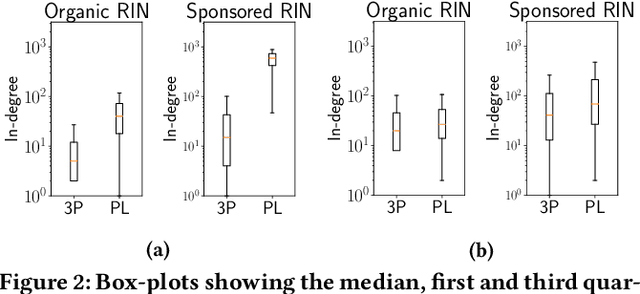When the Umpire is also a Player: Bias in Private Label Product Recommendations on E-commerce Marketplaces
Paper and Code
Feb 02, 2021



Algorithmic recommendations mediate interactions between millions of customers and products (in turn, their producers and sellers) on large e-commerce marketplaces like Amazon. In recent years, the producers and sellers have raised concerns about the fairness of black-box recommendation algorithms deployed on these marketplaces. Many complaints are centered around marketplaces biasing the algorithms to preferentially favor their own `private label' products over competitors. These concerns are exacerbated as marketplaces increasingly de-emphasize or replace `organic' recommendations with ad-driven `sponsored' recommendations, which include their own private labels. While these concerns have been covered in popular press and have spawned regulatory investigations, to our knowledge, there has not been any public audit of these marketplace algorithms. In this study, we bridge this gap by performing an end-to-end systematic audit of related item recommendations on Amazon. We propose a network-centric framework to quantify and compare the biases across organic and sponsored related item recommendations. Along a number of our proposed bias measures, we find that the sponsored recommendations are significantly more biased toward Amazon private label products compared to organic recommendations. While our findings are primarily interesting to producers and sellers on Amazon, our proposed bias measures are generally useful for measuring link formation bias in any social or content networks.
 Add to Chrome
Add to Chrome Add to Firefox
Add to Firefox Add to Edge
Add to Edge